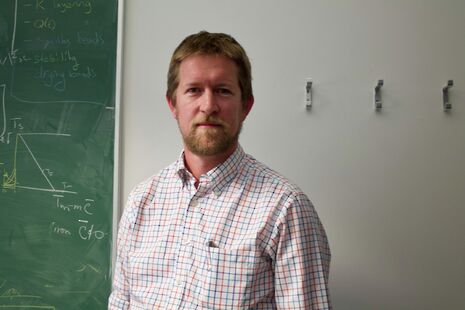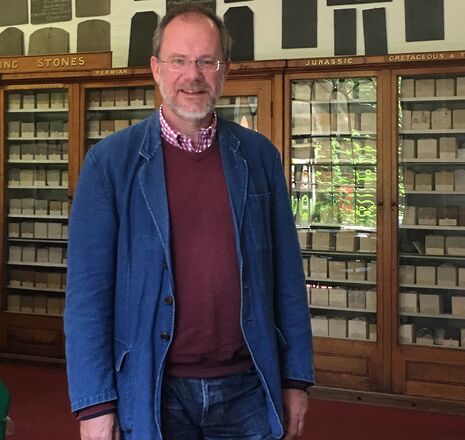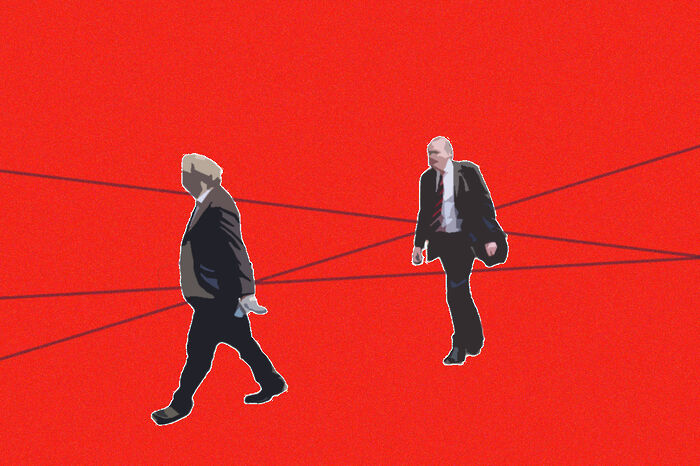Why some academics believe divestment is not the solution to the climate crisis
Ahead of Friday’s University Council decision, three academics discuss why they do not see full divestment as the way forward in battling climate change

On Friday, the University Council is set to decide whether to commit Cambridge to full divestment. Although many students and staff have been vocal in their pro-divestment stance, there is a landscape of dissent within pockets of academia, with some arguing that divestment is not the most effective way of achieving a carbon neutral future.
Professor Simon Redfern, who works in the Department of Earth Sciences, and Dr David Reiner, a University Senior Lecturer at the Judge Business School, both view divestment from fossil fuels as a distraction, diverging from the pro-divestment views of many Cambridge lecturers. This was evident in the passing of a Regent House Grace in 2017, and a recent pro-divestment open letter signed by over 200 academics.

Redfern expressed concern that divestment was instead taking a “stance”, and “not solving the problem”.
This view was echoed by Reiner, who described divestment as placing a “misplaced focus” on how to achieve a carbon neutral future. Redfern, along with Dr Jerome Neufeld, a University lecturer in the departments of Earth Sciences and Applied Mathematics and Theoretical Physics, and a Royal Society research fellow and researcher at the BP Institute, is a member of the divestment working group.
Both Redfern and Reiner claimed that reducing carbon emissions was complex issue that cannot be solved solely through divestment. The recent report by the University’s divestment working group recommended that Cambridge adopt a policy of “considered divestment”, but a significant focus of the report was on other policies through which Cambridge could move toward a low-carbon future and address the issue of climate change.
Both stressed that research into carbon-capture methods was in part funded by fossil fuel companies
The divestment working group was created in May 2017 to consider the question of divestment from businesses involved in fossil fuel extraction.
The recommendation of “considered divestment” within a “positive investment strategy” outlined in the report stated that the University should work to have “no investment in thermal coal or tar sands”, compared to the past precedent of ensuring that Cambridge had only “negligible” investments in the most pollutive sources of energy.
The report also recommended that 10% of indirect investments be placed in environmental, social and governance funds “consistent with a carbon neutral future” with the proportion increasing over time, but did not provide any other quantitative recommendations regarding the majority of the University’s indirectly-held investments.

All countered the views of many climate activists, who largely focus on the role of large corporations rather than individuals in the battle against climate change. The Carbon Majors Report found last year that 100 companies have been responsible for 71% of global emissions since 1988. However, the academics said that individuals should also play a part in reducing carbon emissions. Redfern commented on the “shared responsibility” of examining our own energy consumption.
Neufeld mentioned data consumption, citing the data systems which run Facebook as a “significant CO2 emitter”. He also said that it is “inherent on all of us to think creatively and concretely” about how to reduce our impact on the planet on an individual level, mentioning the environmental impact of vegetarianism. He stated that if we were all to switch to a vegetarian diet, “this would have by far the largest impact on CO2 emissions”. Reiner said that we need to focus on “our own carbon footprints”.
All three academics suggested that alternative strategies would be more effective in reducing carbon emissions. They suggested introducing a carbon tax as a potential solution, as it would supposedly provide industries with an incentive to move towards carbon neutrality. Redfern said that in discussions during the process of gathering evidence for the report, it became “clear” that a carbon neutral future “can’t happen unless there’s a carbon tax”, adding that he felt that the University is in a position to “provide a voice” and “push policy-makers and governments” towards the tax.
Reiner commented that he feels it is “down to governments to put the landscape there that enables industries to operate in a responsible way”. Neufeld stated that governments and institutions must “consider carefully” how to “move rapidly towards a carbon neutral future”, citing “carbon pricing, carbon taxing [and] regulation” as ways in which this could be achieved.
The ability to affect government policy was seen as a key priority. Redfern commented that the University’s power to influence "thought and opinion amongst leaders is strong”, with Neufeld also saying that “at the highest level [the University] need to send a strong signal”. The working group report recommended that “an effective avenue” for the University to “pursue and promote a rapid transition to a carbon neutral society” was through active engagement in research and policy; this included establishing a “centre for a carbon neutral future”.
The academics interviewed pointed to alternative technologies as a way of reducing the amount of carbon in the atmosphere, but stressed that research into these methods was in part funded by fossil fuel companies. Redfern and Neufeld mentioned Bio Energy Carbon Capturing and Storage (BECCS), which involves capturing the carbon dioxide produced from burning fuels and pumping it back into the ground.
Redfern emphasised the importance of the relationship with these companies, as “they are the ones who have got the expertise of getting the gas out of the ground”, making it possible to pump carbon dioxide into the places where gas was extracted from.
 News / Colleges charge different rents for the same Castle Street accommodation2 March 2026
News / Colleges charge different rents for the same Castle Street accommodation2 March 2026 News / News in Brief: waterworks, wine woes, and workplace wins 1 March 2026
News / News in Brief: waterworks, wine woes, and workplace wins 1 March 2026 News / Angela Merkel among Cambridge honorary degree nominees27 February 2026
News / Angela Merkel among Cambridge honorary degree nominees27 February 2026 News / Climate activists protest for ‘ethical careers policy’1 March 2026
News / Climate activists protest for ‘ethical careers policy’1 March 2026 News / King’s hosts open iftar for Ramadan3 March 2026
News / King’s hosts open iftar for Ramadan3 March 2026









